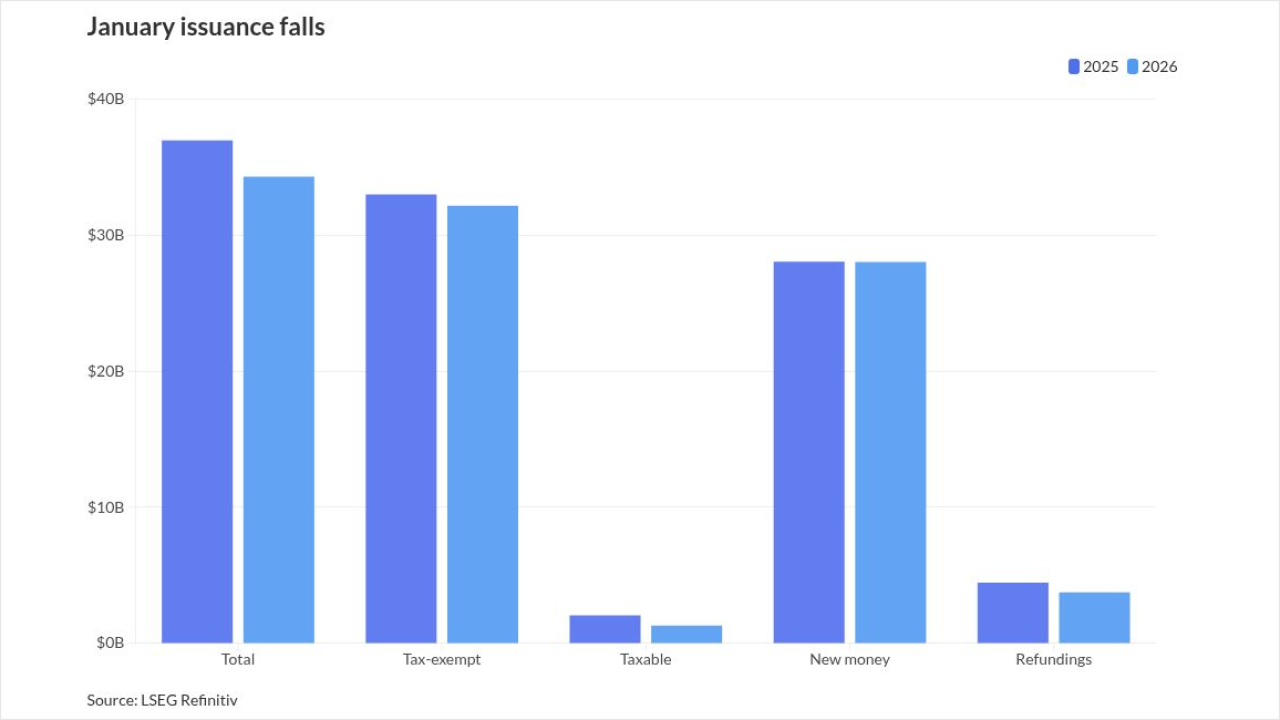CHICAGO – The Treasury Department and Internal Revenue Service are working on guidance aimed at preventing havoc in the municipal market when a key benchmark index is phased out in 2021, a Treasury official said Wednesday.
Treasury Associate Tax Legislative Counsel John Cross made the announcement during a panel discussion at the National Association of Bond Lawyers’ Bond Attorneys Workshop.

The joint Treasury-IRS project is intended to provide “broad relief” from the potential tax problems arising from the phase-out of the London Interbank Offered Rate, or Libor.
Libor is the average rate at which major banks can obtain unsecured funding from each other. It has been used in trillions of dollars of derivatives transactions globally and has been at the center of a series of scandals in which banks and bankers have been charged with manipulating it for financial gain.
The Financial Conduct Authority in London, announced last year that the FCA it will abandon Libor by the end of 2021.
Libor has been widely used in the tax-exempt bond market. Examples include bank loans with floating rate notes or bonds that have rate resets based on Libor and interest rate swaps tied to muni bonds that have been publicly offered.
Absent the kind of relief that Cross said the agencies are working toward, a switch from Libor to a new benchmark could create tax issues, such as reissuance. If floating rate bonds based on Libor switch to another benchmark rate, the switch may be considered a material change to the bonds that causes them to be considered newly reissued. A reissuance would make the bonds subject to the latest tax laws and rules and could even make them taxable.
Cross said that as it stands, a swap tied to Libor could face accelerated arbitrage consequences as a result of a change from Libor. He told the assembled bond lawyers that the planned guidance aims to achieve a similar end to what regulators did when European Union countries switched from their own national currencies to the Euro in 2002.
The muni market may actually be among the more Libor-exposed markets due to the existence of outstanding interest rate swap deals.
“The municipal market has more exposure over time to Libor than some other markets,” Cross said.
Lawyers had been fretting that there could be a rush to secure such relief through the Treasury as 2021 approaches. Some swap documents have provisions specifying what to do if the Libor rate is no longer published, typically going to referenced dealers for quotes on the short-term borrowing rate. But market professionals have said such a process could be cumbersome.
The Treasury and IRS project focuses on SOFR, the Secured Overnight Financing Rate. This benchmark is published by the Federal Reserve Bank of New York and is “a broad measure of the cost of borrowing cash overnight collateralized by Treasury securities.”
New York’s Metropolitan Transportation Authority issued the municipal market's first tax-exempt transaction linked to SOFR earlier this month when it remarketed $107.3 million of Series 2001B Triborough Bridge and Tunnel Authority general revenue variable rate bonds.
Cross said the focus of the relief effort is squarely on SOFR, rather than on any other possible Libor alternative. Although Libor is not due to be retired for some three years, Cross said Treasury and the IRS want to get out ahead of the issue. He declined to specify a time frame for the guidance, however.





